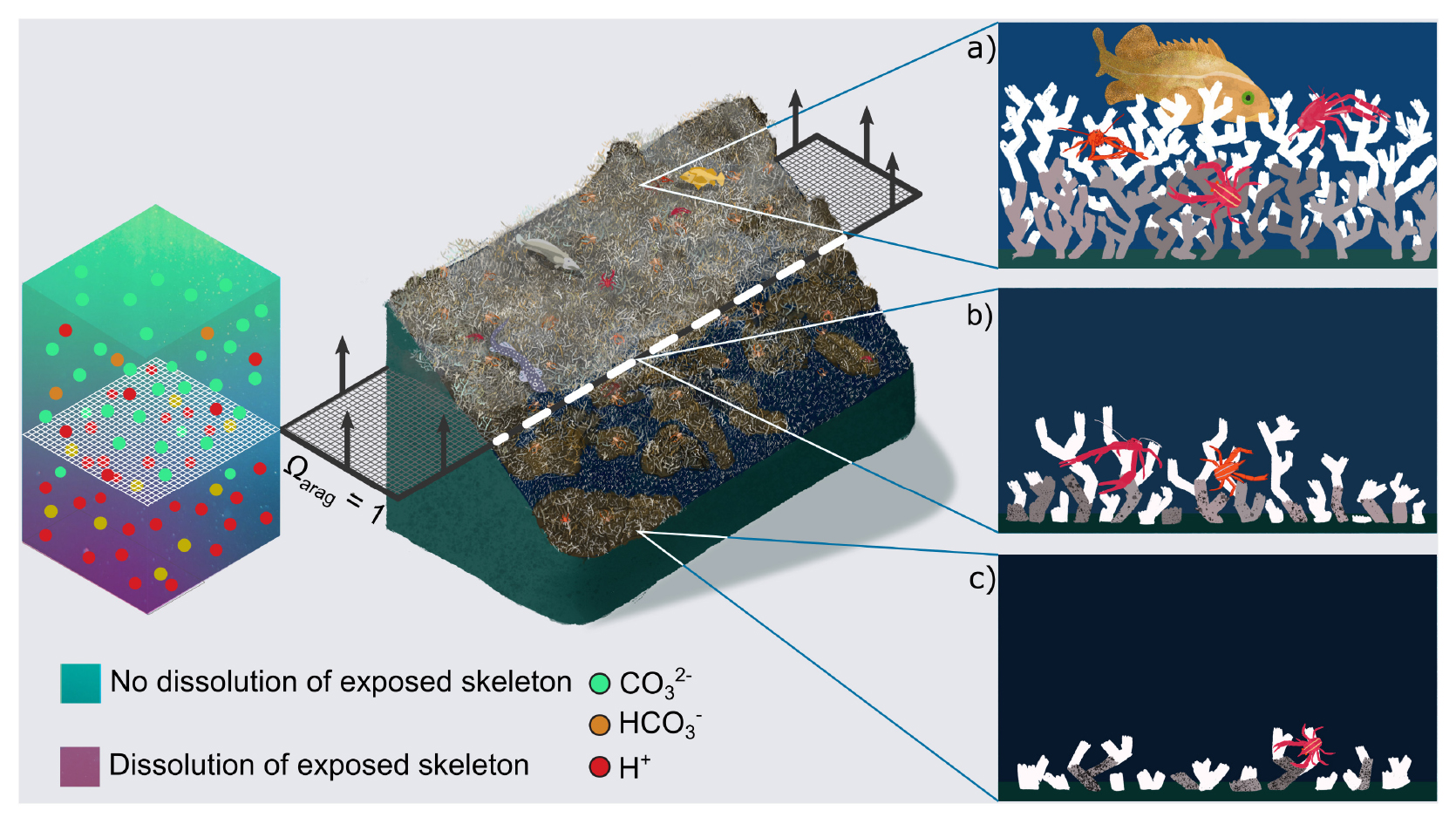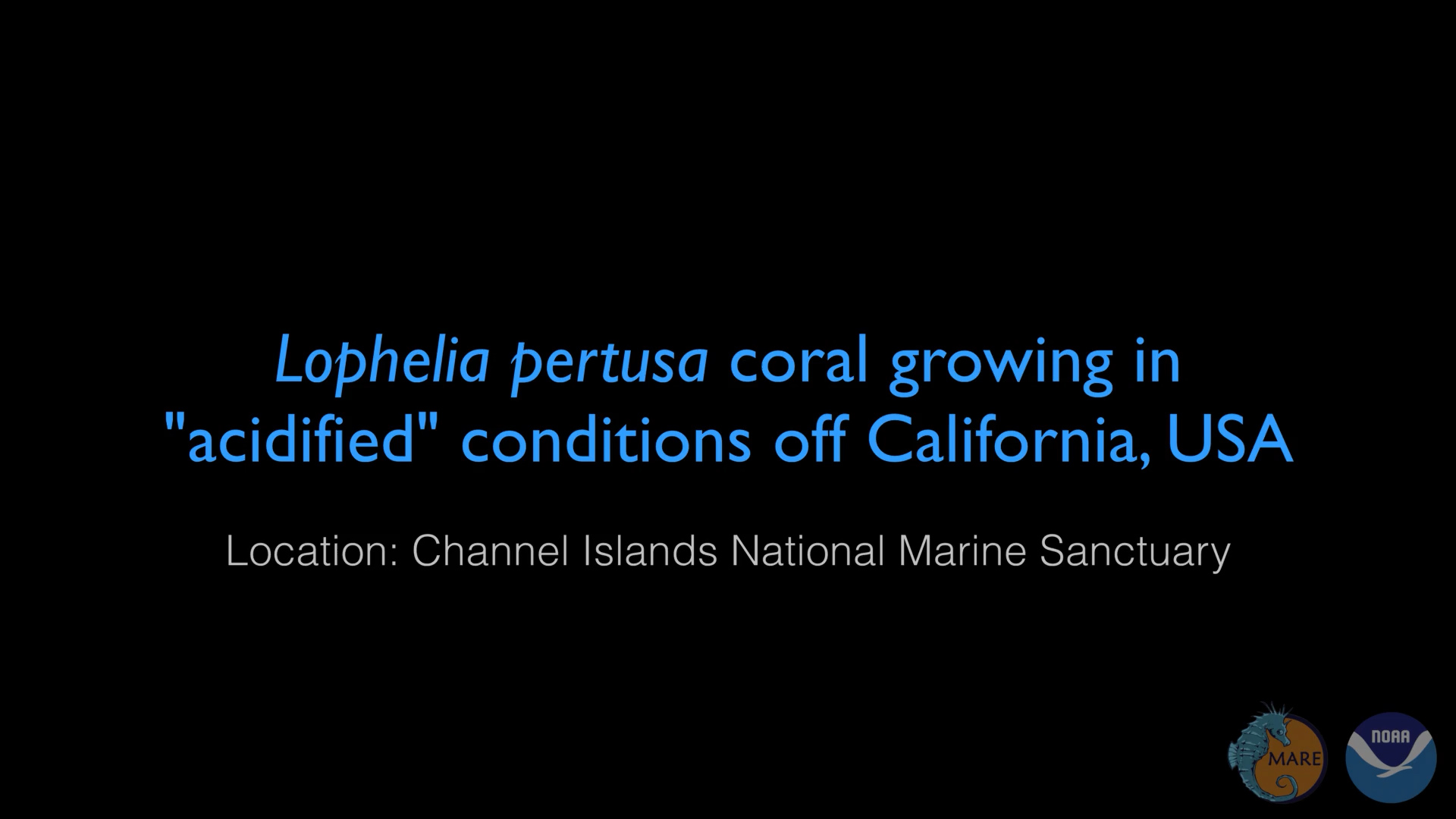A new study shows that the waters off the California coast are a natural laboratory for observing the effects of ocean acidification on cold-water coral reefs. California’s ocean waters have a low pH compared to other regions. These low pH, low carbonate waters make it difficult for hard corals to grow and form reefs, as they do elsewhere.
Under normal conditions in the deep sea, living corals build on the skeletons of dead corals, creating a complex, three-dimensional structure that provides habitat for a variety of marine organisms. Under acidified conditions, the dead coral skeleton becomes more porous, weakens, and eventually crumbles. The live coral can still grow under these corrosive conditions, but the reef structure is less complex and less capable of supporting biodiversity.

The study is an international collaboration between the University of Edinburgh, Heriot-Watt University, and a broad group of NOAA researchers along the U.S. West Coast. The team used field and laboratory approaches in the Channel Islands National Marine Sanctuary and waters off the coast of western Scotland as “natural laboratories” to study the effects of acidification.
Applying engineering principles, the team analyzed coral branches over time to better understand the mechanisms of skeletal weakening under ocean acidification conditions. The results showed rapid weakening of the skeleton, similar to the effect of osteoporosis seen in aging human bones. Interestingly, the study could help inform efforts to model the onset and progression of osteoporosis in humans.
Ocean acidification is progressing rapidly in the California current, and most cold-water hard corals are now in conditions that favor framework collapse, though other types of corals are thriving. The data acquired on how ocean acidification affects California corals will help natural resource managers around the world quantify which cold-water coral ecosystems are at risk, when they will be at risk, and how their loss of complexity will impact biodiversity.
For more information, visit the NOAA webstory or the news release from our partners at the University of Edinburgh, and read the study in Frontiers in Marine Science.

